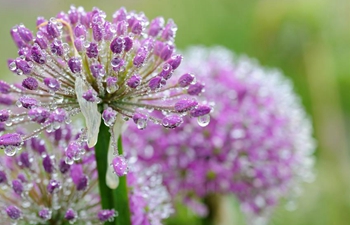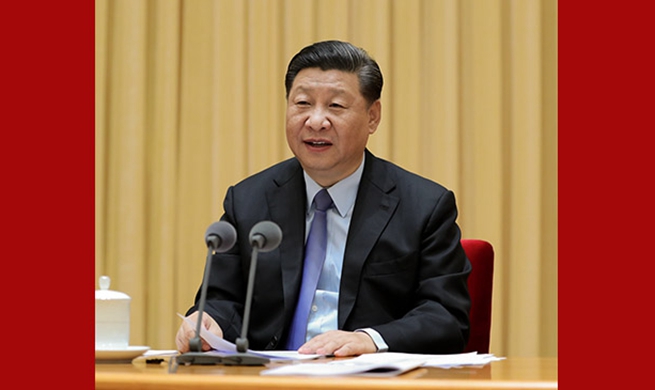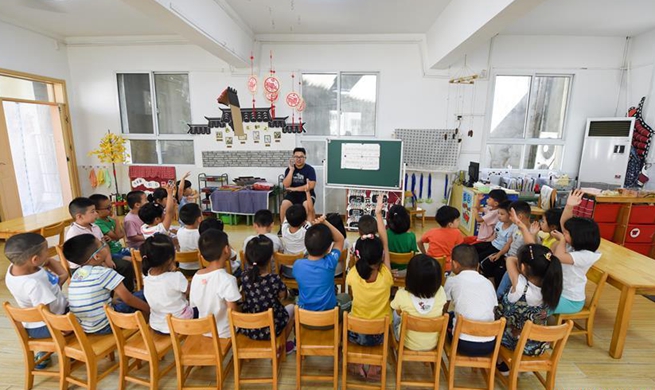ADDIS ABABA, Sept. 10 (Xinhua) -- Mekonen Sisay has many things to be excited about as he prepares to start week-long celebrations welcoming the Ethiopian New Year.
Sisay, a 45-year-old government employee, has received a pay raise, and is waiting to enroll one of his three children in a prestigious local university.
More importantly, it's the time of the year, where his family and friends gather to prepare for a feast to count their blessings of the previous year and wish for more blessings in the New Year.
The Ethiopian New Year, or Enkutatash in Amharic language, falls on Sept. 11 (or Sept. 12 during a leap year). The east African nation uses a unique calendar that counts its year seven to eight years behind the Gregorian calendar.
As he unloads a sheep he bought at a market in Addis Ababa's Bole Medhanalem district, Sisay told Xinhua he looks forward to a brighter new year.
"The Sheep market this year is good. A large sheep fetches around 4,000 birr (148 U.S. dollars) to 5,000 birr (185 dollars); a medium-sized one fetches between 2,500 birr (92 dollars) and 3,000 birr (110 dollars)." said Sisay. "I bought a sheep at a relatively good price of 4,000 birr (148 dollars)."
"The New Year is exciting for me. I will spend the New Year with my family in a state of happiness and fulfillment... I have bought chicken and sheep for this occasion."
With Ethiopia seeming to come out of almost three years of political turmoil thanks to the leadership of new Prime Minister Abiy Ahmed, who assumed office in April, Sisay said he hopes the New Year will usher in societal harmony and happiness for the whole country.
"I wish for my family and all Ethiopian people happy New Year holiday 2011," Sisay said, referring to the coming New Year on the Ethiopian calendar, which falls on Tuesday. "May it be a year of love, happiness and work."
Abdel-Fattah Mohammed, a Muslim who sells sheep at Bole Medhanalem district market, is also enjoying the festive atmosphere and optimism permeating the country.
"We all celebrate the New Year without difference in our religious beliefs," Mohammed said.
In a traditional society like Ethiopia's, men are expected to cover household costs and buy meat products, while women are expected to do household chores like preparing special foods for the holidays.
However, as Ethiopia rapidly urbanizes and lifestyles change, more and more women become bread winners and are out purchasing meat products.
Meaza Hailu, a 42-year-old mother of four, was visiting a chicken market at Yeka district of Addis Ababa.
Having bought a live chicken for 280 birr (11 dollars), Hailu said New Year celebrations are special and that she will make Doro Wot, a special chicken stew, for her family.
"I wish my family, husband, my children, my sister's family and all others an Ethiopian New Year of fulfillment, love, happiness," Hailu told Xinhua.













